Minimalist bedroom ideas – how to create a dreamy zen-like space
Think pale hues, layers of textures, and lots of natural lights and be inspired by these luxurious minimalist bedroom ideas
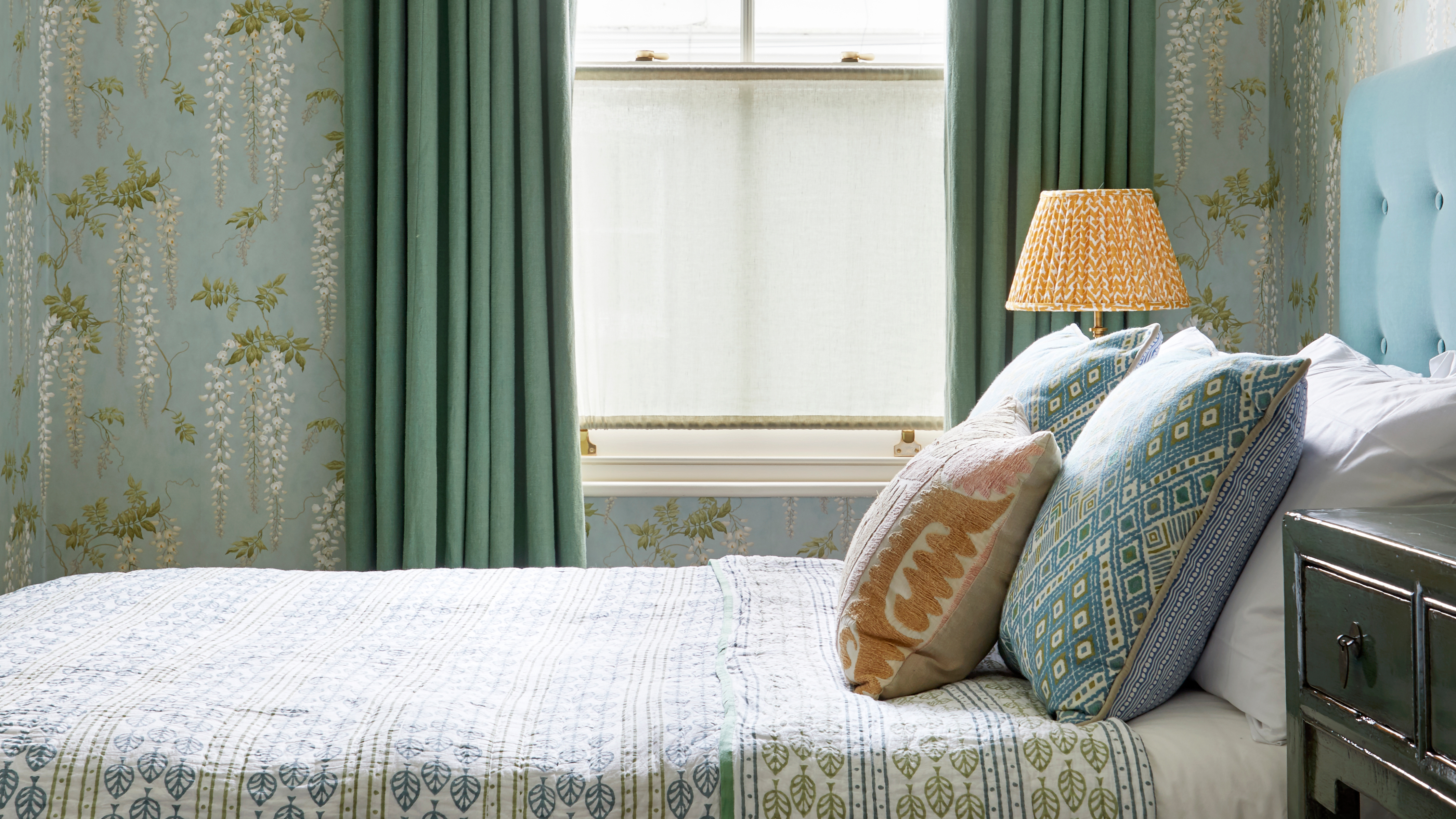

Minimalism is a word oft-used in the world of interior design. But how many of us really understand the meaning of minimalism? The word usually evokes visuals of neutral spaces, empty rooms, and simple textures. Is that all there is to it? Our minimalist bedroom ideas prove there is a whole lot more to this popular trend.
'Minimalism starts with the minimal essentials. Live life by stripping it down to the bare essentials. Take it from this Japanese interior designer who has a visual history of minimalism that goes back generations: it is more about what you don't buy than what you do. Buy higher-quality items that have real value. When the clutter is gone, suddenly your textured sheets will merit the attention of a fashion runway, your mid-century lamp becomes a sculpture, and your peace is the focal point of it all,' says Jarret Yoshida, Principal Designer, Jarret Yoshida Inc.
It may be not easy to move your entire life in this direction but you could take certain, simple measures to convert your home into a place that encourages minimalist interior design and helps you live in a less complicated manner. Take the bedroom for instance. This is where you rest, relax and rejuvenate. It is therefore essential that it is equipped with all elements that put you at peace.
If you're looking to redesign this space then we have plenty of zen-like bedroom ideas for you.
What is a minimalist bedroom?
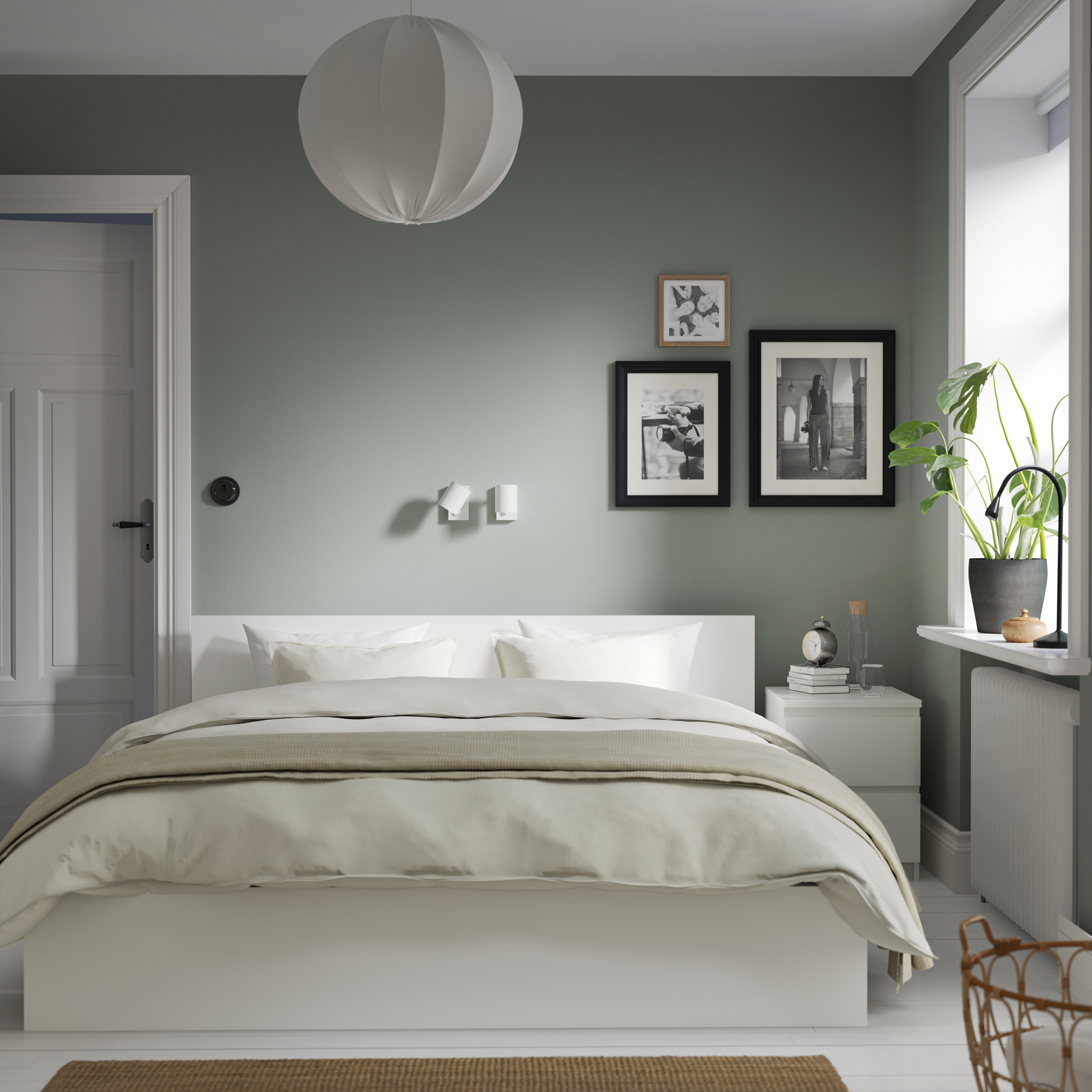
In simple terms, a minimalist decorating style or a minimalist neutral bedroom is rid of unnecessary knickknacks, ornate trims, busy patterns, and loud colors. This isn't to say that the bedroom should be plain and boring. The central idea is for the bedroom to be functional, necessary, and soothing. Its design should be organized, refreshing with a sprinkling of organic, earthy materials, a comfortable bed, a few thoughtful accessories, and maybe a light coat of paint.
'Minimalism at its core is a rebellion against consumerism. But it also is a design aesthetic in its own right. A minimalist bedroom is perfect for people with super-occupied and cluttered lives, who are always on the move. It can be defined by clean lines, a restrained palette while keeping it simple,' offers Varun Baweja, founder & interior designer, Varun Baweja Designs.
1. Get rid of clutter
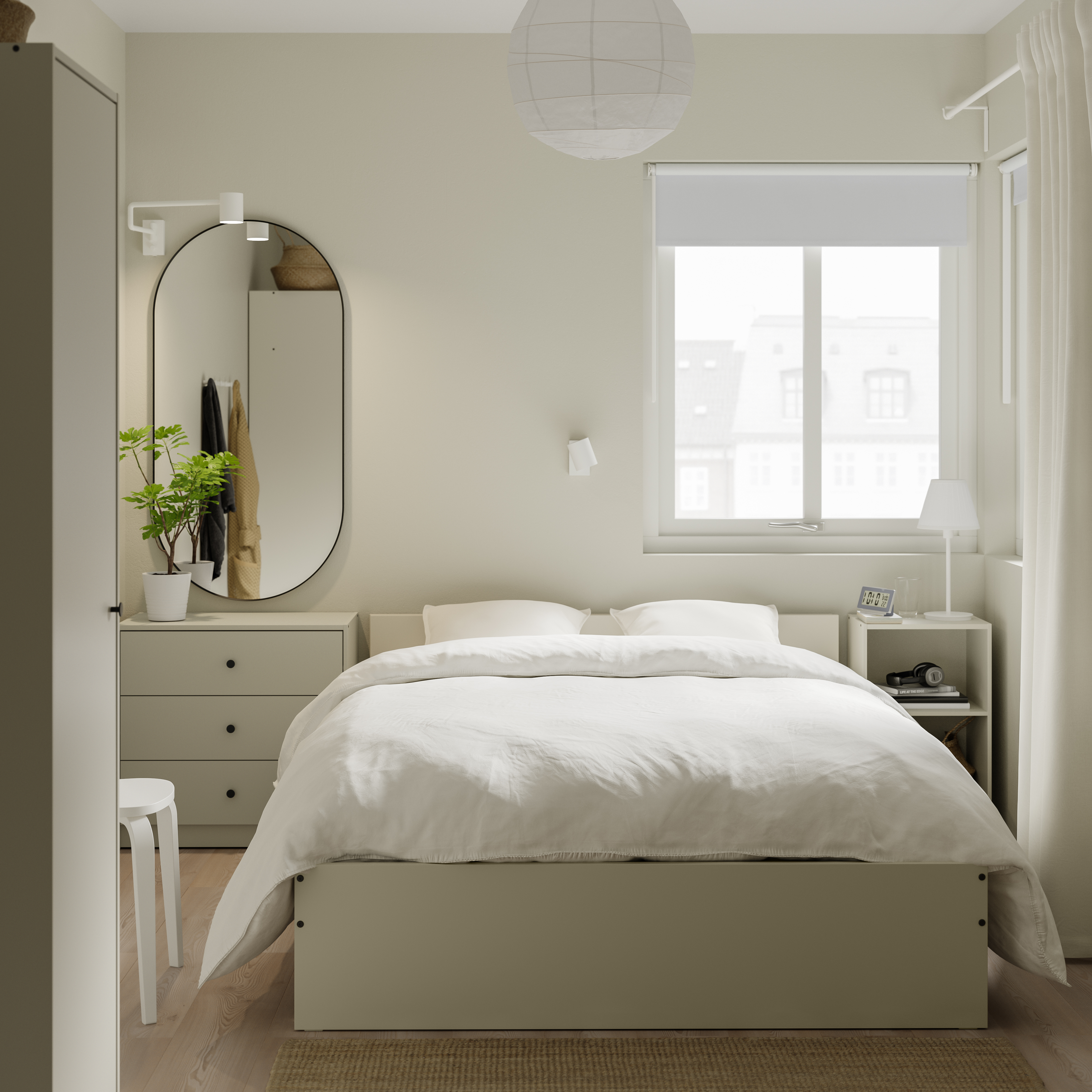
Quite simply, Marie Kondo your bedroom! There should be no space for anything excess. A simple way to get rid of things is by asking yourself – have you used that lamp, that print, that cushion in a year? If the answer is no, there's almost no chance you will in the coming years as well. Start a donation box.
'The first activity to do before embarking on designing a minimalist haven is to make a list of needs and wants – be it for decor, furniture, or furnishings. The idea is to keep the bare minimum and discard the other things,' says Kumpal Vaid, interior designer, Purple Backyard.
Make it a habit to clean your room of all unnecessary things every few months. Another way of ensuring your bedroom is always minimal is by setting a limit to the number of things you can have in that space. The moment the elements in your room exceed that number, it's time to declutter.
'Get rid of stuff you aren't using by donating it to your local charity store. Have old sheets? Take them to the animal shelter. Have a broken lampshade and worn-out books? Gift them to a friend so you can chat about it with them when you meet them for coffee,' Jarret adds.
If you live in a small bedroom, it may be difficult to declutter and have things out of sight at all times. In that case, invest in units that can hide away things after they're used. Thinking of a folding bedroom desk that keeps your laptop and notepads inside, and away from sight. Tuck medicines and hand creams into drawers and cabinets, leaving surfaces as clean as possible for a restful feeling.
2. Minimalism doesn't mean only white interiors
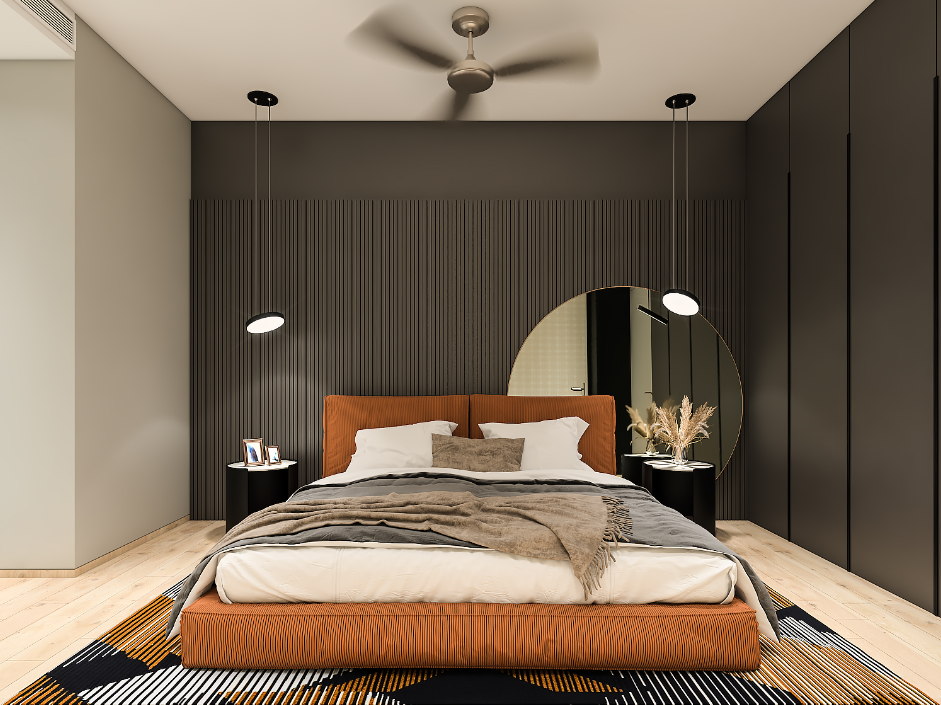
A minimalistic bedroom is anything but vanilla. In a bid to make it a calm, composed space, you don't need to drown it in clinical white walls or grey tones, you can still have fun with bedroom color ideas. The idea is to observe restraint, not abstinence.
'Bedrooms should be put together to nurture wellbeing. To create a minimal space, the first thing one should do is to get rid of any kind of clutter. A hint of color can be introduced simply with art, cushions, or even fresh flowers. With statement wooden walls and a pallet of materials, the design can be limited yet stylish,' says Ajay Arya, Founder & Interior Designer, A Square Designs.
You could even choose a moody dark grey or black, like in this picture, to create an intriguing design story. Notice how only two walls have black wall paneling while the third is a simple white, which helps create a balance. The large mirror breaks the monotony of the black, vertical slats and gives a stylish punch to the space, without overwhelming it.
'Keep the decor in the room minimal. Add a pop of color by using greens, hang a minimalist artwork on the wall, and keep the shelves to a minimum. If you’re not able to do this, try to keep your dressers as far away from the bed as possible, to make the space around your bed feel simplistic and clutter-free,' says Smitha Zachariah, creative head, ZxP Design.
3. Choose lightweight furniture
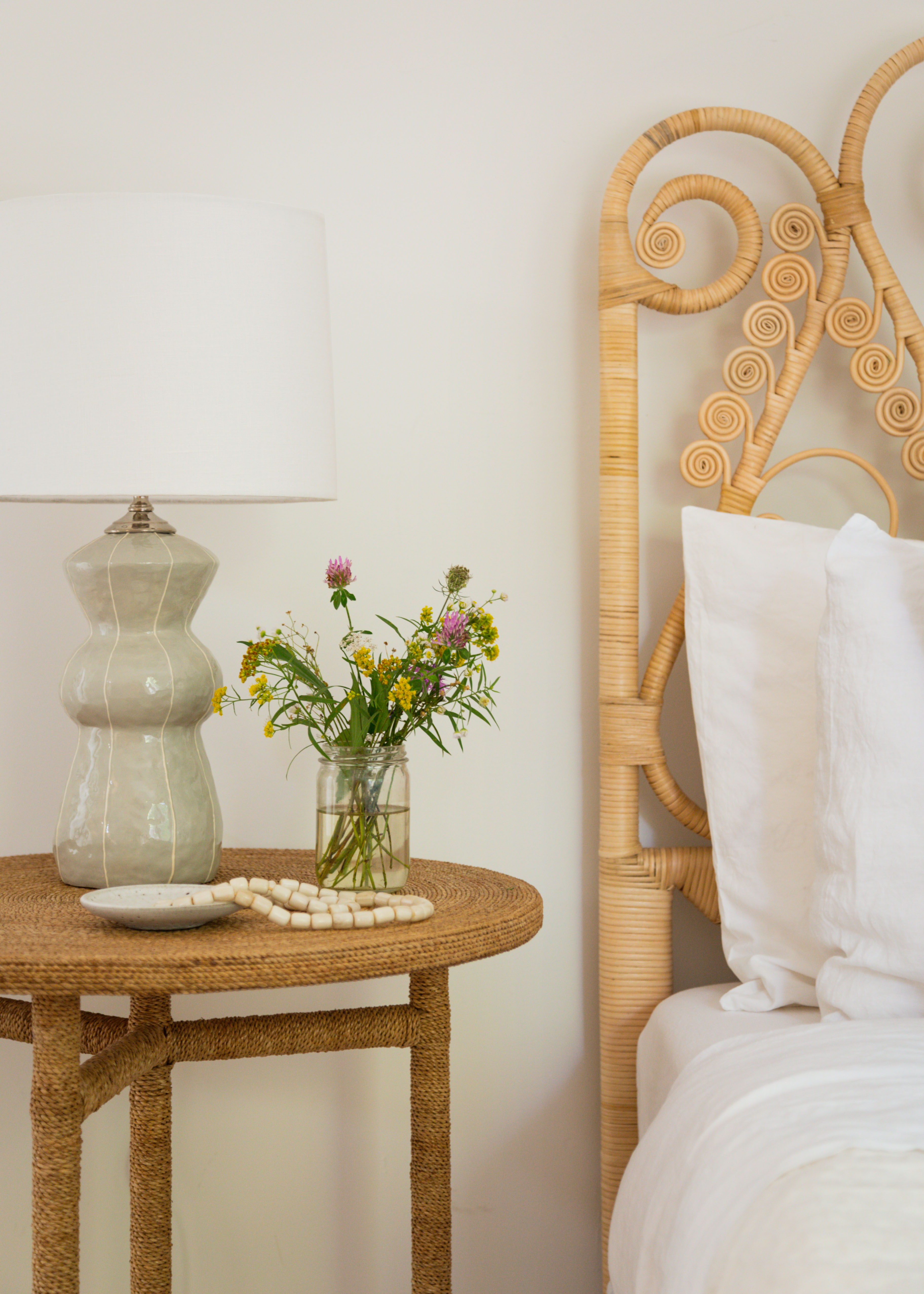
Less is more, yet not at the cost of function and style. No rule says a minimalistic bedroom cannot have a comfortable chair or a chaise. The idea is to choose modern bedroom furniture in lightweight, earthy materials so they don't add a bulky dose to the room, yet offer more seating comforts. Cane, plywood, acrylic to mesh can offer possibilities that are simple, stunning, and understated. Be a well-stocked minimalist!
4. Allow natural light to flow in
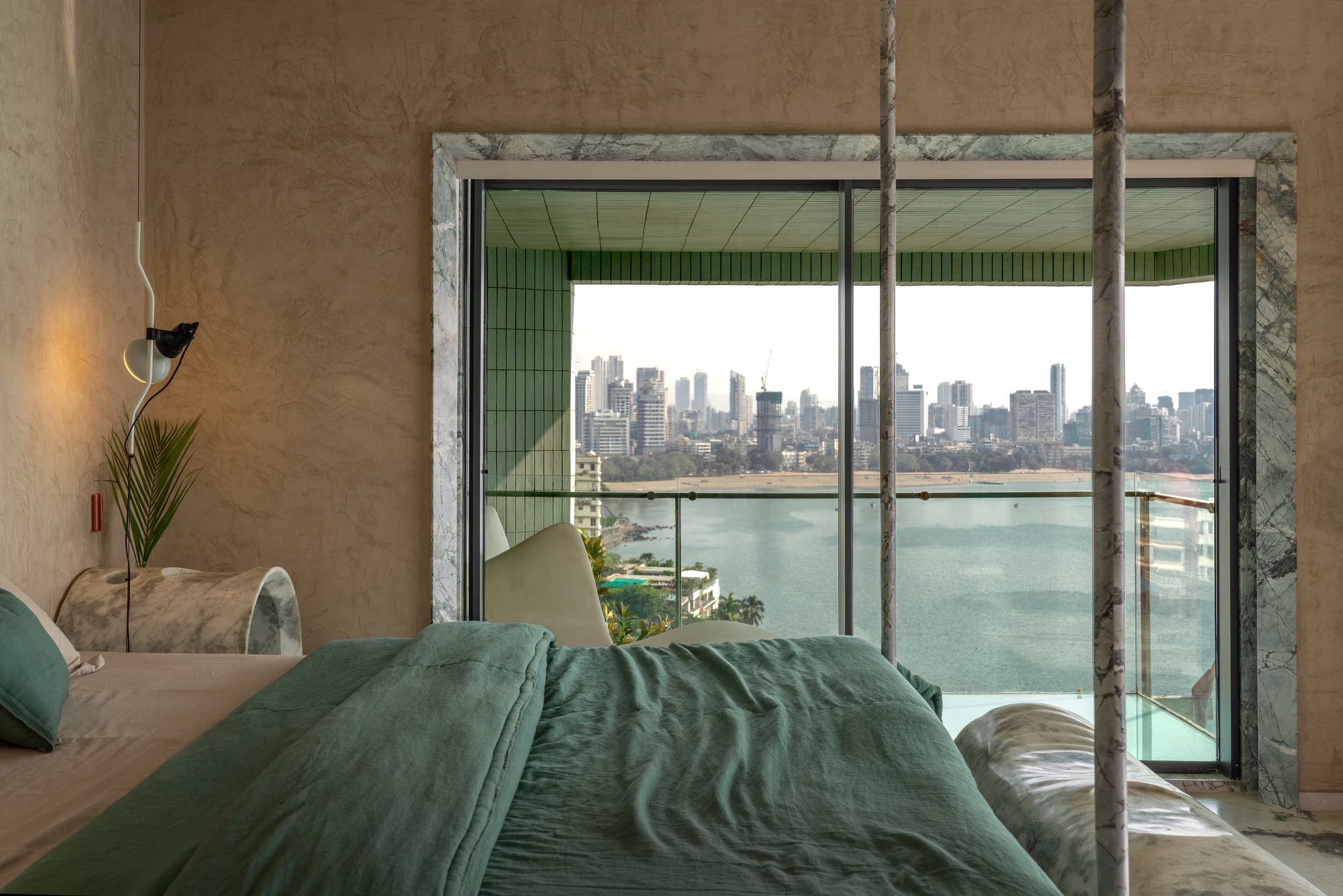
The better lit a space is, the most positively charged it is. Think about it: Don't you prefer facing the morning sun as you go about your emails? There's something so inherently pleasing and essential about natural lighting. In a minimalistic room, this form of light is important as it reduces the need for more artificial bedroom lighting. Swap your heavy drapes for sheer ones. Or choose roman blinds that can help you control the light. Of course, if you have the heart for it, bare windows are the ultimate minimalist move.
'With large bedroom windows allowing ample sunlight in, the space with a cozy seating area would be a comfortable haven for the residents,' Ruchi Gehani & Rashi Bothra, Founders & Interior Designers, Azure Interiors.
5. Experiment with clean lines
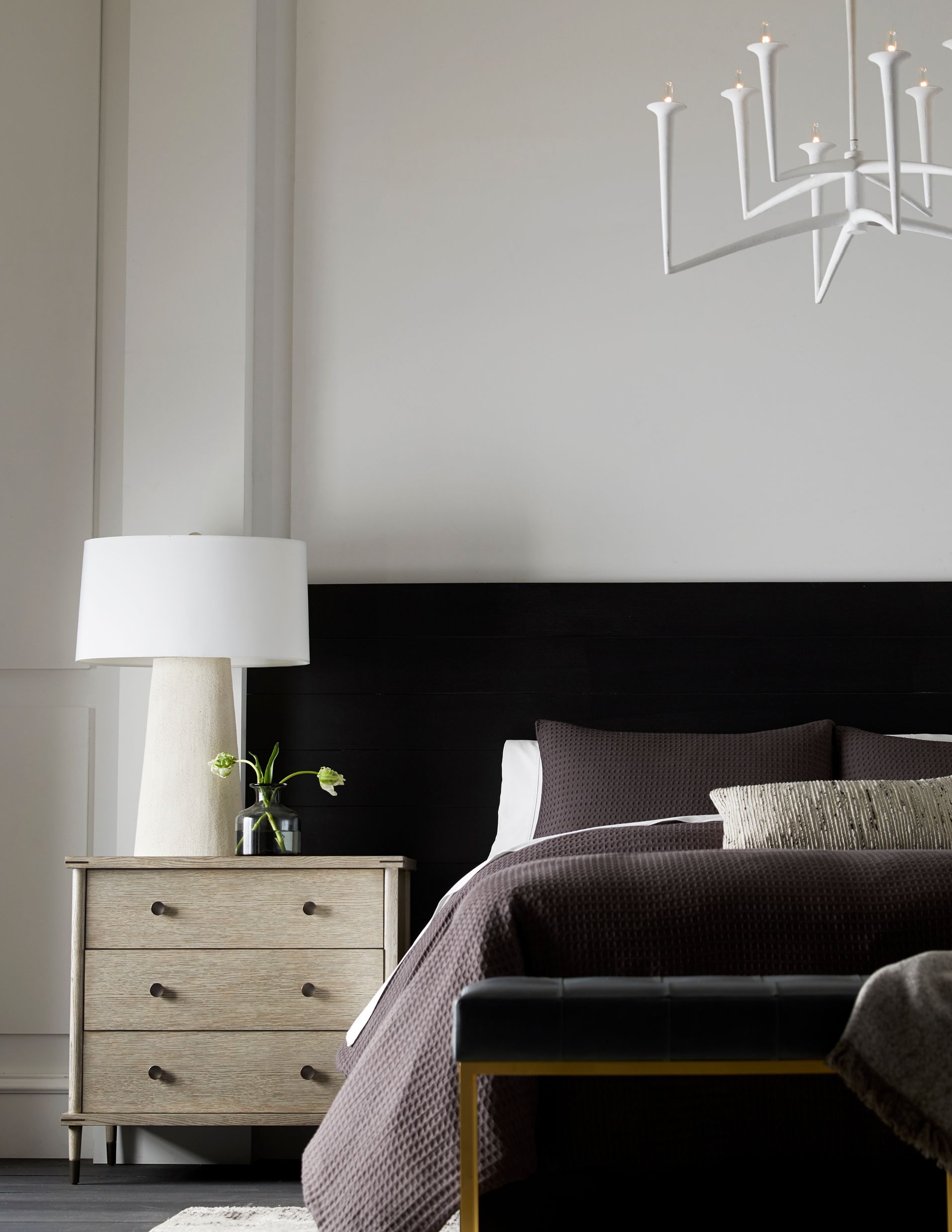
Minimalism is all about harmony, so make sure the scale and look of the bedroom are clean and balanced. In this space, opt for straight-lined furniture pieces instead of curving, unusual shapes as these disrupt the look of the room. In this white bedroom, even the chandelier is straight-lined, non-ornamental piece adding an effective style dose to the bedroom lighting. The idea is for things to look simple, clean, and non-fussy.
Another way to maintain an overall clean look is by choosing low-slung furniture to create the impression of high ceilings. This will help draw the eyes to the four walls and the scale of the room and create more space for cohesiveness.
6. Make your bed a luxurious escape
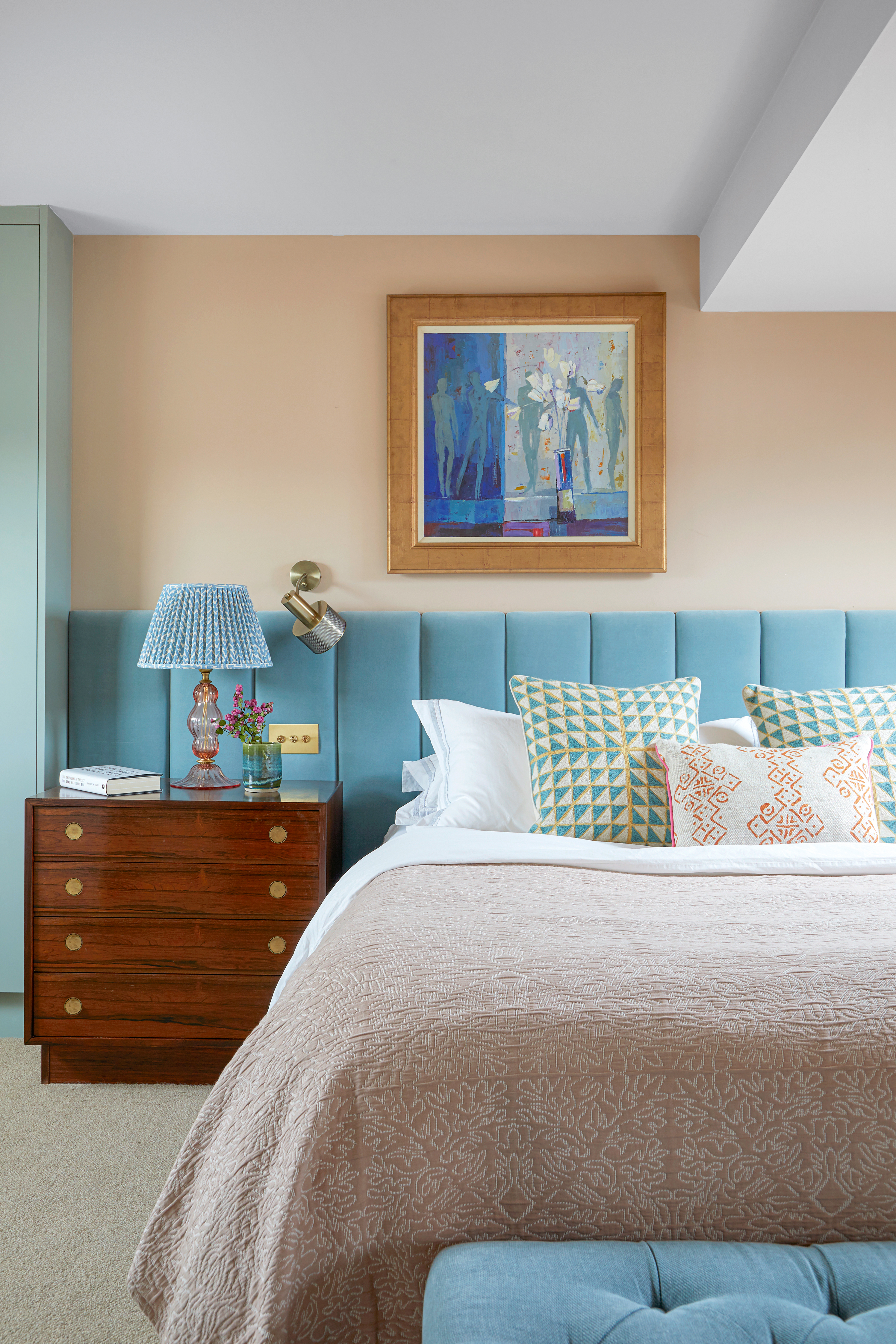
The most important element of any bedroom is the bed. Now, you don't need to go overboard with making it fancy and deeply comfortable – it's best to keep things simple. White linen sheets, a soft throw, and an accent pillow are quite enough; just what you need to achieve the minimalist look. If you love whimsical spaces, a four-poster bed too would work. And, it'll add to the straight lines in the room.
7. Bring in warm, earthy materials
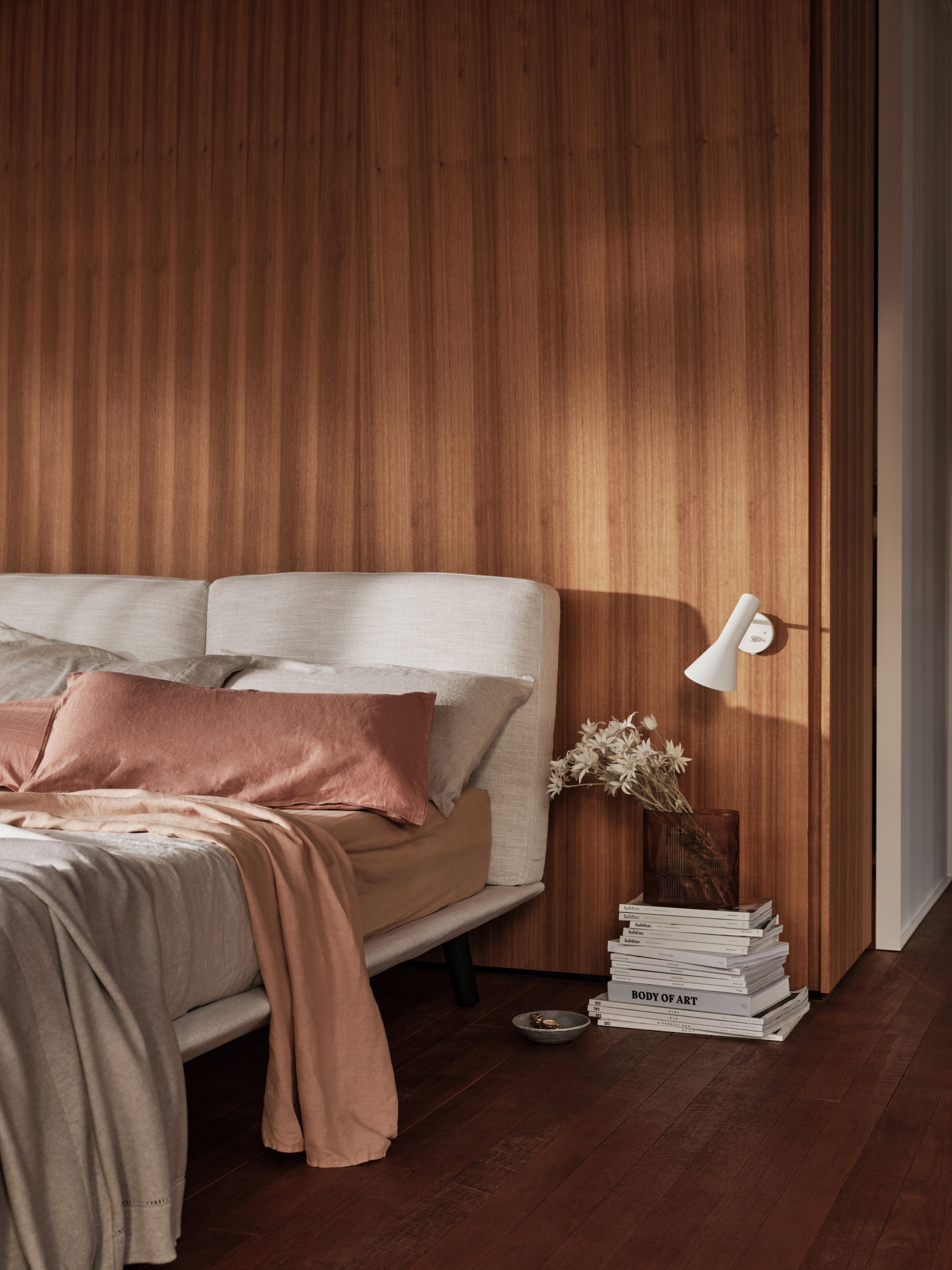
For a minimalistic space, you must love the basics. Choose tone-on-tone textures, like bedding, pillows, throws, and rugs in varying shades of neutrals. Materials like wood, bamboo, jute, and more help create an organic homeware story. Another lovely idea is the introduction of paper lanterns and shades. These give off a light and airy feel and cast a soft glow to create a really cozy bedroom.
8. Don't forget the plants
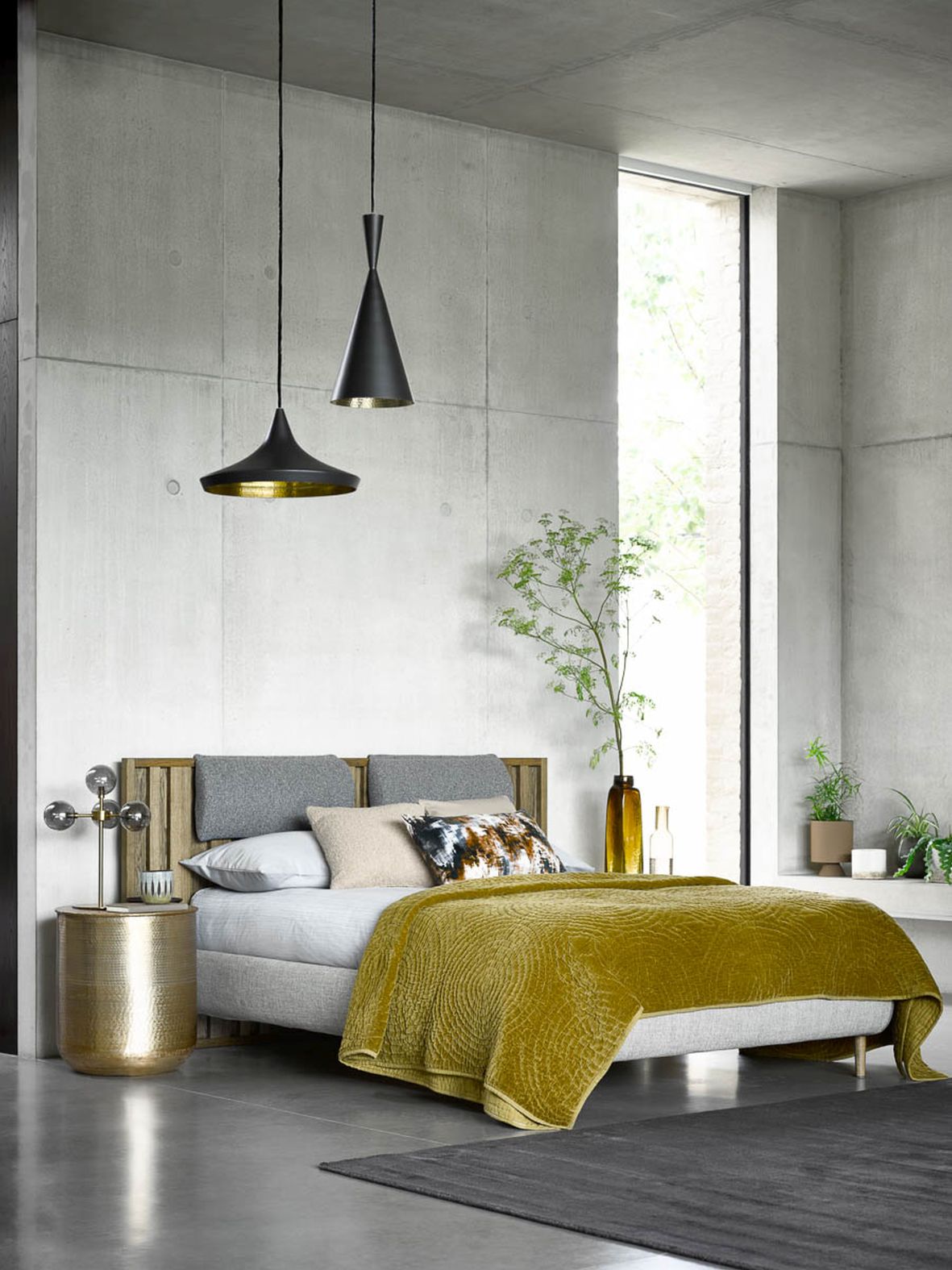
There's no denying it – plants can change the energy of a room. And in many cases, even clean the indoor air. In any case, plants serve many purposes, from decoration, injecting color to space to even standing in as fillers to awkward spaces. In a minimal bedroom, where it's better to keep accessories and knick-knacks to a minimum, bringing in plants is a good idea.
And if you don't have green fingers and are worried you might kill your plants, then the artificial plants can look just as good.
9. Only bring in pieces that have meaning
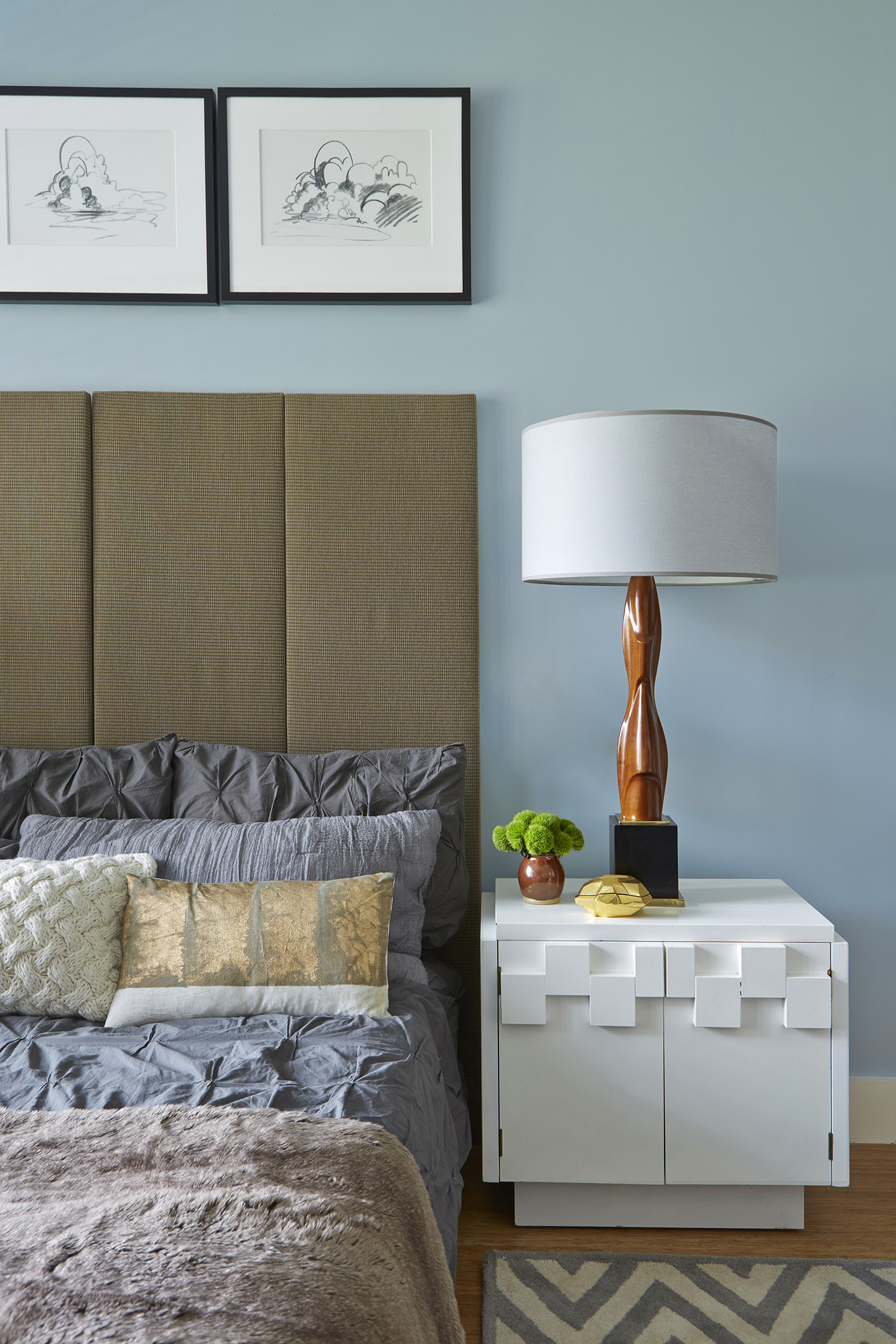
Minimalism encourages the creation of less cluttered and more emotive spaces, without overwhelming. If you have black and white family photos, a special collection of miniature artworks, or pottery that you made yourself, you may very well display them gallery wall style, of course keeping in mind that the pieces do not exceed the limit of items that your bedroom can and should have.
Overall, avoid large floral prints, small busy prints, over-the-top complicated designs that call for attention and distract from the overall zen of the room. The minimalist bedroom mostly hinges on solid blocks of neutral colors, interspersed with a few soft hues.
How can I make my bedroom minimalist?
A minimal modern bedroom is a clean, crisp, clutter-free environment that allows the mind to be peaceful and uninterrupted. This is a decorating strategy that encourages 'less is more'.
The first biggest lesson is to get rid of junk. Make it a habit to rummage through your bedroom belongings and put away accessories and even furniture that you don't use often or at all.
Choose simple materials that are from the earth – wood, jute, bamboo, stone – for a more natural interior. Ensure your bedding is comfortable, soft, and not overcrowded with pillows and throws. Keep the windows open to welcome natural light. Decorate minimally, but with heartfelt pieces. Plants will help you have a refreshing environment.
What is a minimalist bed?
In a bedroom, the prime focus truly should be the comfort of the bed; the most important piece of furniture. Make sure the height of the bed isn't uncomfortable, so climbing up and down daily isn't a task. The average height of most beds is around 25 inches, but if you're exceptionally tall, then a bed 30 inches off the ground should be fine. Next, choose the best mattress carefully – it's not a bad idea to visit a retailer and try out different mattresses till you find the right one. Minimal bedrooms anchor on neutral tones so choose sheets that are soft-toned.
And finally, ensure the bed isn't cluttered with too many pillows, cushions, throws, and quits. Ideally, a single, soft pillow, one cushion, and a quilt should be enough. You can choose these elements by honestly asking yourself which one of these do you use daily. The others are simply miscellaneous, adding to the clutter.
Be The First To Know
The Livingetc newsletters are your inside source for what’s shaping interiors now - and what’s next. Discover trend forecasts, smart style ideas, and curated shopping inspiration that brings design to life. Subscribe today and stay ahead of the curve.

Aditi Sharma Maheshwari started her career at The Address (The Times of India), a tabloid on interiors and art. She wrote profiles of Indian artists, designers, and architects, and covered inspiring houses and commercial properties. After four years, she moved to ELLE DECOR as a senior features writer, where she contributed to the magazine and website, and also worked alongside the events team on India Design ID — the brand’s 10-day, annual design show. She wrote across topics: from designer interviews, and house tours, to new product launches, shopping pages, and reviews. After three years, she was hired as the senior editor at Houzz. The website content focused on practical advice on decorating the home and making design feel more approachable. She created fresh series on budget buys, design hacks, and DIYs, all backed with expert advice. Equipped with sizable knowledge of the industry and with a good network, she moved to Architectural Digest (Conde Nast) as the digital editor. The publication's focus was on high-end design, and her content highlighted A-listers, starchitects, and high-concept products, all customized for an audience that loves and invests in luxury. After a two-year stint, she moved to the UK and was hired at Livingetc as a design editor. She now freelances for a variety of interiors publications.
-
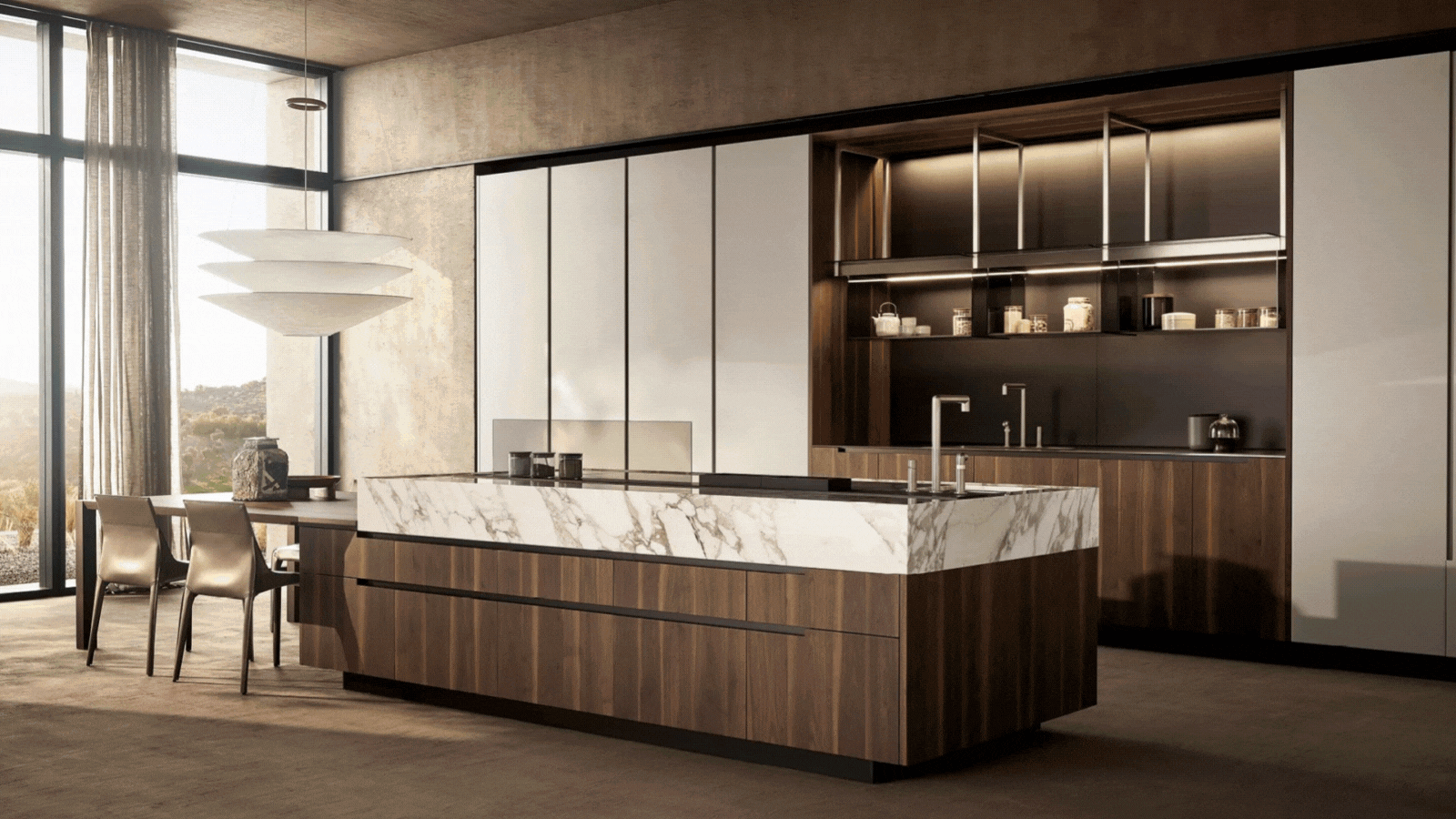 Italian Kitchen Trends — 5 Emerging Ideas From the Chicest Italian Designers That I Predict Will Go Global in 2025
Italian Kitchen Trends — 5 Emerging Ideas From the Chicest Italian Designers That I Predict Will Go Global in 2025Fresh from Milan Design Week, these are the exciting finishes, styles, and innovative materials I can't wait to see in more kitchens this year
By Faiza Saqib Published
-
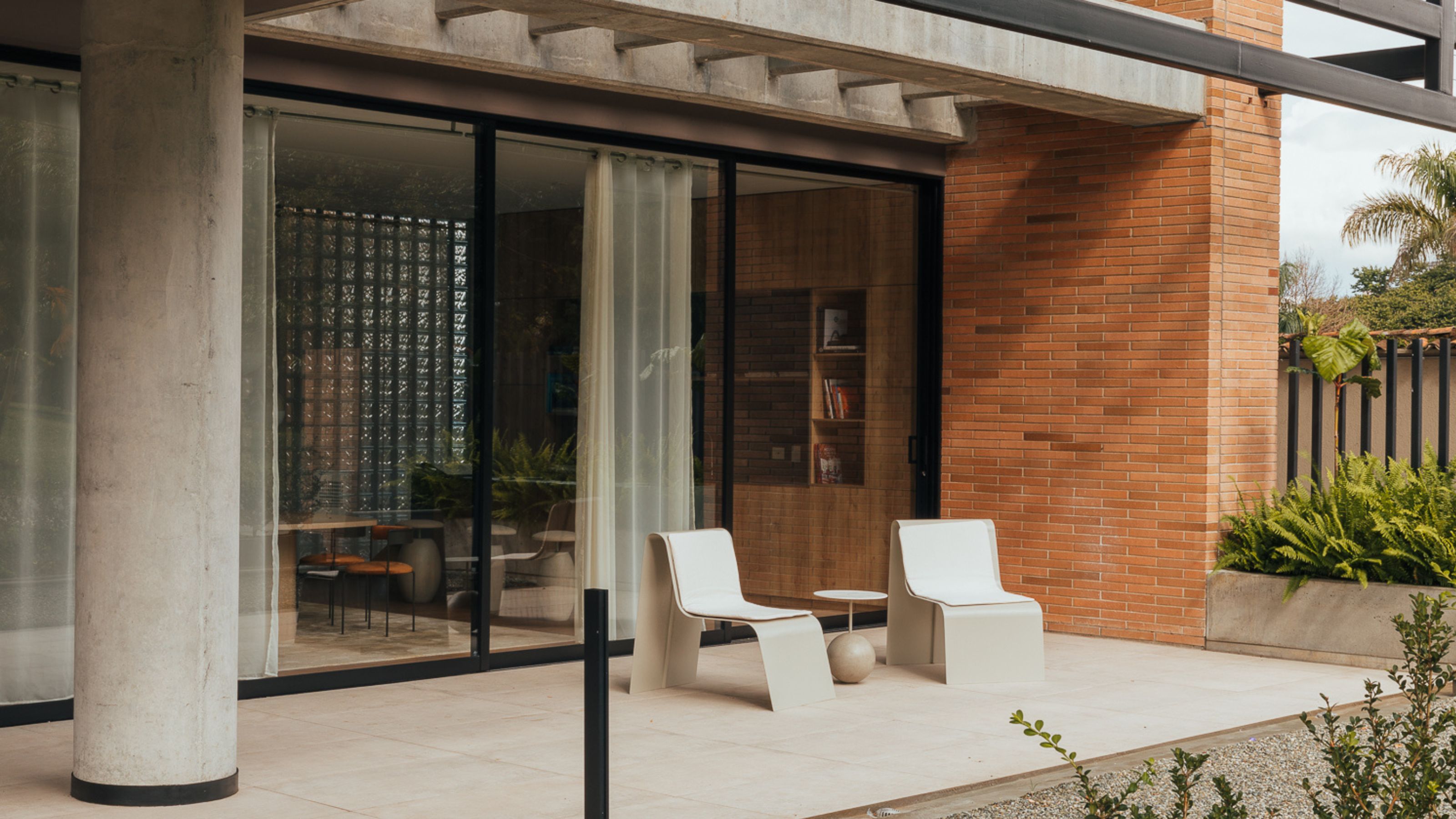 Small Patio Ideas — 8 Clever Ways to Style Up Even the Tiniest of Outdoor Spaces
Small Patio Ideas — 8 Clever Ways to Style Up Even the Tiniest of Outdoor SpacesIf you're dreaming of turning your small patio into a dream space the right combination of practical and creative ideas will help you max up its potential
By Sarah Wilson Published